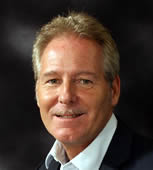
 The Harare Institute of Technology cordially invites students and staff; partners and stakeholders within the science and technology sector, academia, Government departments and all interested parties to a public lecture by Prof. Hubert J. Gijzen PhD, UNESCO Regional Director, UNESCO Regional Office for Southern Africa.
The Harare Institute of Technology cordially invites students and staff; partners and stakeholders within the science and technology sector, academia, Government departments and all interested parties to a public lecture by Prof. Hubert J. Gijzen PhD, UNESCO Regional Director, UNESCO Regional Office for Southern Africa.
Date: Monday, 19 September 2016
Time: 9am
Venue: Engineering Hall, Harare Institute of Technology,
Topic: Transforming Our World: The 2030 Agenda for Global Action
The Role of Science Technology and Innovation
To register contact prmanager@hit.ac.zw. Telephone: 04-741422-36
In September last year the United Nations (UN) adopted the new post-2015 development agenda "Transforming Our World: the 2030 Agenda for Sustainable Development". The Agenda 2030, with its 17 Sustainable Development Goals (SDGs) and 169 targets, is a historic plan of action for people, planet and prosperity. The Agenda presents a comprehensive, far-reaching and people-centred set of universal and transformative Goals to wipe out poverty, fight inequality and transit towards a sustainable development path over the next 15 years. The SDGs emphasize the need for transformational shifts to achieve the dual objective of poverty eradication and sustainable development. Such transformations will be needed in a number of sectors, such as energy, food production, water management, production/consumption and others. A complicating factor is that these different shifts need to be made almost simultaneously, adding further to the complexities. To manage these complexities requires a long term vision and clear strategy that puts science technology and innovation (STI) at its core.
The MDGs did not articulate a specific role for science. Let us avoid making the same mistake in the 2030 Agenda. The visionary AU Agenda 2063 gives due attention to the role of STI. To eradicate poverty and associated problems, and to accommodate the needs of about 9 billion people in 2050 in a sustainable way, a ‘more of the same’ approach will not work. It will require a wave of knowledge, creativity and innovation to be unleashed, which underpins a key role for science. But what are the roles of science, technology and innovation (STI)? Which conditions need to be met to generate the full benefits from STI? And what can we learn from the past? Three main functions for STI to guide and support the Post-2015 agenda are proposed:
The recent transition from MDGs to SDGs presents a once-in-a-generation opportunity to shape a vision of a sustainable future. We need to put the best science to work to develop and guide the implementation of that vision. This can happen only with strong political commitment. The road to sustainability is a two-way street: we need strong science to support policy, and we need strong policy to support science.